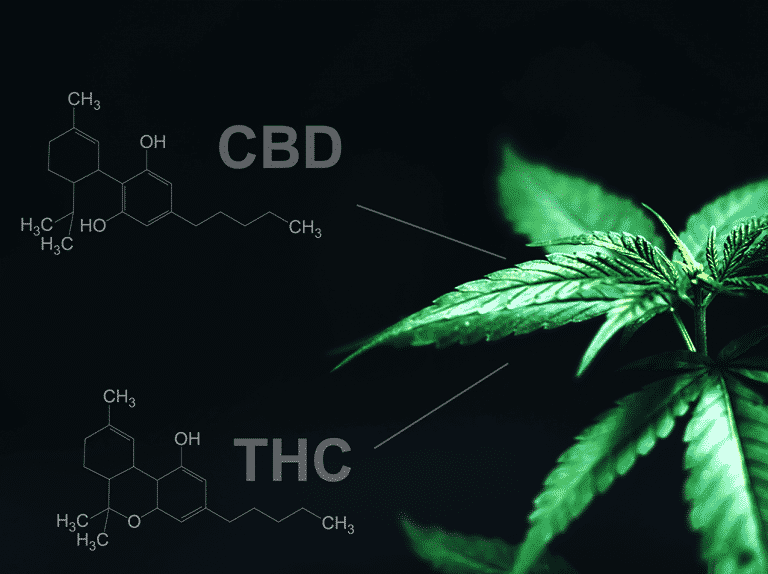With more states legalizing medical marijuana, it is important to understand what the research has truly found about marijuana as a health care tool.
At the outset, it is important to be clear that all the following indications and usage information is for Cannabinoids (CBD) (without the THC), so it does not apply to smoked, or vaped marijuana. Research into smoking-based applications of marijuana have not been widely studied and have inherent unpleasant side effects.
Every medication has an inset that explains indication, usage, side effects, precautions and counterindications. The following is a research-based proposal for what such an insert would look like for “Medical Marijuana”.
Indications/ Usage of Medical Marijuana
Medical marijuana has been found to be effective in the treatment of:
- Nausea (related to chemotherapy, AIDS and other serious disorders)
- Poor Appetite (related to chemotherapy, AIDS and other serious disorders)
- Crohn’s Disease (but must remain on forever to avoid symptom relapse)
- Pediatric Seizures (only when also using anti-seizure medications)
- Lennox-Gastaut Syndrome (only when also using anti-seizure medications)
- Dravet Syndrome (only when also using anti-seizure medications)
- Muscle Stiffness (associated with Multiple Sclerosis, Paraplegia)
- Neuropathic Pain (due to cancer, spinal cord injury: only with other pain medications)
Contraindications
Medical Marijuana is contraindicated for patients with the following:
- Schizophrenia
- Those 17 or younger
- Those with high addiction potential
- Those with impaired cognition (TBI, Dementia)
- Those requiring quick reflexes in response to environmental events
- Chronic anxiety sufferers
- Mania (those with bipolar disorder)
- Pregnant and nursing Women
Adverse Reactions/Side Effects
- Dizziness
- Confusion
- Memory disturbance
- Concentration Difficulties
- Reaction impairment
- Balance Problems
- Dry Mouth
- Fatigue
- Drowsiness/Excessive Sleep
- Euphoria
- Vomiting
- Diarrhea
- Weight gain
- Increased anxiety
- Decreased awareness of physiological states
Warning
Many studies have found that patients feel that the use of medical marijuana is helping their symptoms, sometimes to a significant degree. Some of the same studies have found that these self-evaluations are in error and reflect a distortion of measurable data. For example, patients felt that they were standing straighter, had better balance and had other benefits when all these areas were actually worse after using medical marijuana. Because of the decreased awareness of physiological status and distorted self-evaluation of physical, cognitive and emotional states, physicians will need to frequently use objective measures of success when evaluating the utility of this as medication.
Precautions
General: The cost/benefit of using Medical Marijuana should always be a consideration when considering it as a treatment for the above disorders. As very few head-to-head research has been done in comparing medical marijuana with current standard medications, it is impossible to state that it is superior or inferior to a given treatment regimen.
The effects of medical marijuana seem to vary significantly between patients and within a given course of treatment. While some short-term help for anxiety and insomnia has been found, the use of medical marijuana long-term has been found to increase insomnia and anxiety. Other studies with patients with PTSD have found highly inconsistent results, from significant decrease in symptoms to a notable increases in trauma symptoms. Such variability means that the use of medical marijuana for these and like issues should be undertaken with great caution. And only after evidence-based treatments for such maladies have been attempted and been unsuccessful.
The variability of CBD and THC percentages in smoked marijuana makes adequate dosing nearly impossible. This is not the case with non-smoked CBD-based medicines. The added serious side effect of frequent exposure to poisonous and carcinogenic actors present in smoking-based delivery systems should not be overlooked when doing a cost-benefit analysis of the use of medical marijuana.
Pain: Studies have found that patients report relief from neuropathic pain from the use of medical marijuana and prefer it to traditional opiate medication. However, the most effective pain management strategy suggested by studies is using medical marijuana as an adjunctive medication to potentiate the effects of traditional opiate treatments- as the CBD can make opiates work better in the patient. Studies have not found medical marijuana to be effective as a stand-alone intervention for serious pain management. However, the decreased awareness of physiological status and distorted self-evaluation inherent in using medical marijuana may offer some subjective benefits that cannot be discounted.
Popular Misconceptions:
Medical marijuana is a poor treatment for glaucoma, migraines, dementia, obesity, social anxiety, long-term insomnia and non-neuropathic pain.
Adolescent Considerations: Studies that purport to show marijuana use correlated with decreased IQ have been found to have serious flaws. When other biopsychosocial factors are held constant, general IQ does not seem to be affected by adolescent marijuana use. However, use by teens under 17 have found that verbal IQ measures and trial-and error learning can be impaired. More significantly, an increased drop-out rate, less attained schooling and vocational underattainment are associated with teen marijuana use.
Drug Interactions:
Medical marijuana can cause adverse events when used with: Amphetamines, Anticholinergics/Antihistamines, Tricyclic Antidepressants, Benzodiazepines, CNS depressants, and disulfram.
It is clear from the research that marijuana has some potential to give doctors and patients options on ways to augment present treatment or to give some palliative relief from some symptoms in specific and severe cases. The drumbeat that holds that medical marijuana is a panacea for nearly everything that ails one is fundamentally incorrect. But this idea also highlights an inconvenient truth- Excessive use of alcohol, opiate, or any psychogenic substance has always been very effective in helping people overlook important areas of their life and health. But that’s not medicine, that’s snake oil.
Content Originally Published By: Dr. Robert Boxley @ Centerstone
More Articles To Read About Health
Chronic Pain Management: What’s Best
Mindfulness-Based Interventions
Stop Suffering: 8 Tips For Overcoming Depression
Technology In Behavioral Health Services
Substance Abuse and Mental Health Disorders





















